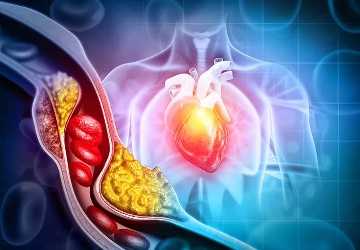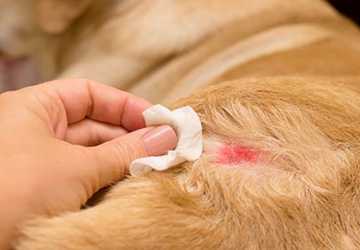Understanding the Link Between Cholesterol and Heart Disease
Do you know how cholesterol is related to Heart disease? Heart disease is one of the leading causes of death globally, and cholesterol has a deep link with the heart. Everyone seems aware of cholesterol, but do they fully understand what it does to the heart?
If cholesterol is not controlled, it can result in blood vessel blockages, heart attacks, and even strokes. When your arteries are gradually getting blocked, you may have no symptoms.
This blog post will reveal the secret and detailed information on how cholesterol impacts the heart and how it can be prevented.
Let's get started!
Understanding Why Cholesterol Matters for Your Heart
Most people consider cholesterol a heart enemy, but cholesterol is not all bad.
The body must build cells and make hormones, which requires a certain amount, not necessarily a significant amount. The problem begins when the quantities are too large but of the wrong types.
Cholesterol is more accurately described as a delivery service in your bloodstream.
Some types deposit fatty substances in your arteries, while others assist in removing them. Knowledge is vital to maintaining the heart's health. Education and awareness are significant in dealing with cholesterol, as they empower people with knowledge.
With this knowledge, you can make better choices about what to eat, how to exercise, and how to cooperate with your doctor. This knowledge enables you to avoid the onset of heart disease.
Be sure to act before you are diagnosed with a particular disease. If you learn this information now, you will be safe from heart problems in the future.

What are the Different Types of Cholesterol
Some types of cholesterol cause problems, while others quietly do their job. It's good to know what they do and what they need!
● Low-Density Lipoprotein (LDL) Cholesterol: The Troublemaker
The LDL cholesterol is called 'bad' cholesterol for a reason. This sneaky stuff can get into your arteries and cause a lot of problems.
These LDL particles accumulate at the walls of your arteries, creating a traffic jam in the blood vessels. This buildup, known as plaque, causes your arteries to narrow and blood to move through them with more difficulty.
High levels of LDL are the higher your chance of getting heart disease. This can lead to heart attacks, strokes, and other problems with your heart and blood vessels.
● High-Density Lipoprotein (HDL) Cholesterol: The Hero We Need
HDL particles constantly circulate in your bloodstream and work like garbage trucks, identifying excess cholesterol and then removing the substance to take it to the liver.
It is nature's way of ensuring that the arteries are free from any buildup of fats and other unhealthy deposits.
HDL is like the body's sanitation department because people with high levels of it are protected from various diseases.
HDL is good cholesterol. The higher the level, the less likely you are to develop heart disease. It is your bodyguard, shielding you from cardiovascular issues.
Exercise is an excellent way to increase your concentration of good cholesterol. Your cleanup crew will perform better working as if you promoted them.
Healthy fats such as olive oil and avocados raise the body's HDL levels.
● Triglycerides: The Wild Card
Triglycerides are the rebels. They are not cholesterol but are usually associated with cholesterol and frequently found in the same group.
During digestion, your body stores all the calories it will not immediately use as triglycerides. These are kept in your fat tissues and used as a backup energy source.
High triglyceride levels are not suitable for the body. High levels of high LDL or low HDL levels raise the possibility of heart disease.
People should monitor their intake to ensure their triglycerides are not uncontrollable. They should reduce their intake of foods high in sugar and fat but fill up on fruits, vegetables, and whole grains.
Physical inactivity contributes to an increase in triglyceride levels; exercise is necessary.
What's Behind Your High Cholesterol?
This got you thinking about why your cholesterol level is increasing. It is not always one or the other; it can be both or any of the mentioned factors. Sometimes, a combination of these two makes it hard to diagnose or treat.
Breakfast, lunch, snacks, dinner, drinks, and between meals matter greatly. Eating high-cholesterol, high-saturated fat, and high-trans fat foods will increase cholesterol levels. Imagine a greasy hamburger, buttery croissant, and anything fried.
Inactivity, smoking, and being overweight can push cholesterol levels up. Some people have a higher tendency to develop high cholesterol, especially if inherited.
Researchers have explained that as people age, their bodies become less able to manage cholesterol. Koprowski says that after menopause, a woman may experience an increase in the substance.
Understanding the causes is the first step towards achieving better cholesterol levels.
Reducing Your Cholesterol: A How-To Guide
Here are some recommendations on how to avoid or manage high cholesterol:
● Eat Your Way to Better Cholesterol
Your plate is one of the most potent weapons in the battle against high cholesterol. No other factor can impact heart health more than the foods you eat.
First, recommended foods are fruits and vegetables. They are a natural method of cleaning the blood of bad cholesterol. Your best foods are apples, berries, and leafy greens.
Whole grains are another secret weapon. Oats, quinoa, and brown rice decrease LDL, giving your heart a warm, fiber-filled relaxation.
Not all fats are the same. Eliminate red meats and whole-fat dairy. However, embrace healthy fats in avocados, nuts, and olive oil.
Pro tip: Spice things up! Garlic, ginger, and turmeric are cholesterol-busting foods in disguise.
● Move It or Lose It: Exercise for Heart Health
It's time to start exercising. Exercise is not just about slimming down or gaining muscle; it's a cholesterol-fighting crusader in disguise.
Regular physical activity can help raise HDL and decrease LDL. It's as if it helps exercise the heart every day.
You don't have to be a gym rat or wear expensive athletic wear. Even a 30-minute daily walk, five days a week, is enough to bring change. Get moving, and stop once the next foot is ready to advance.
Those willing to take risks may try changing it up. On Monday, swim; on Wednesday, dance; and on Friday, go biking. Your heart (and cholesterol) will be in control.
A beginner-friendly routine: Take a 10-minute walk three times daily. Increase the amount and intensity as your strength and capacities improve. Like the fable's tortoise, a slow and steady approach is the key.
● When Diet and Exercise Need a Little Help: Medications
Sometimes, diet and exercise alone are insufficient, and medications are required. Medications don't work like magic bullets but can potentize your cholesterol-lowering campaign.
Statins are the heavyweights in cholesterol control. They are effective by preventing the production of a product your body requires to make cholesterol. It's like placing a checkpoint on the body's cholesterol production.
The crucial part is consulting your doctor before starting medication. They are the professionals capable of guiding you toward the proper treatment. There is no magic solution, and what works for your neighbor may not suit you.
Medications are often taken in groups rather than alone. They are recommended along with a healthy diet and regular exercise.

Prioritize Your Heart Health Today!
You've learned a lot, so it's time to take action. Don't wait for your doctor to sound the alarm—your health is on the line.
Remember, small actions can make significant changes. Replace that burger with a salad. Take the stairs instead of the elevator. Schedule that overdue check-up.
Your heart has been working for you even before you were born. Isn't it time you gave it some payback? Cholesterol control is future control; it all begins with cholesterol levels. Every part of you will thank you!





